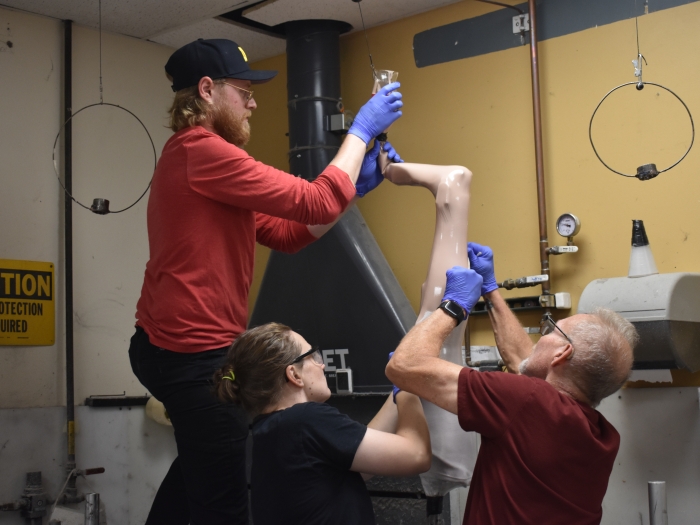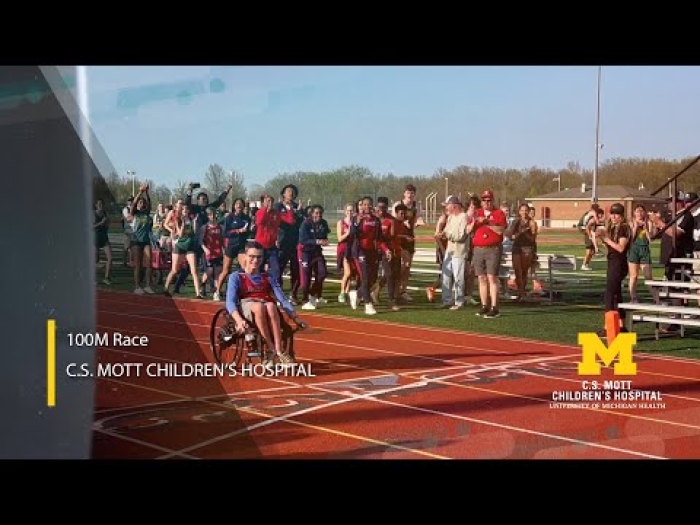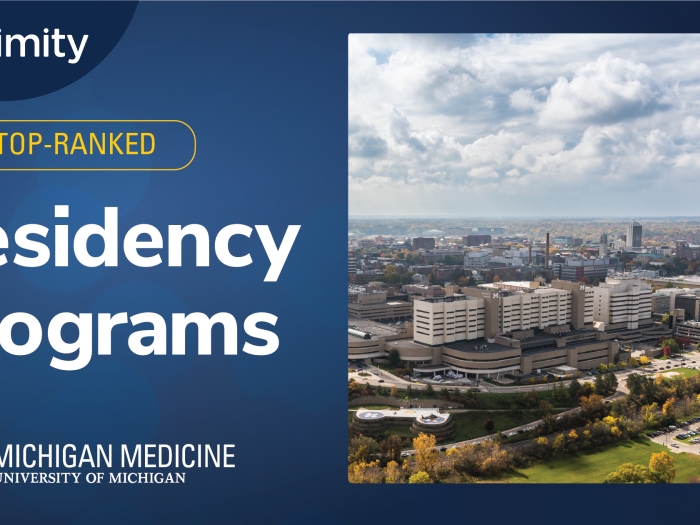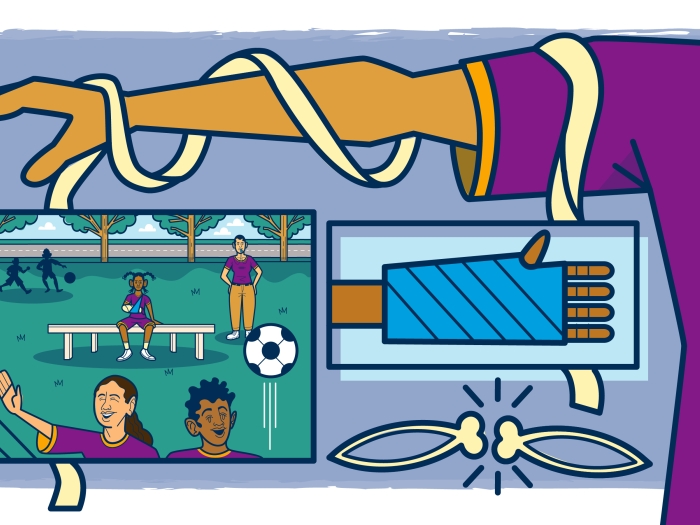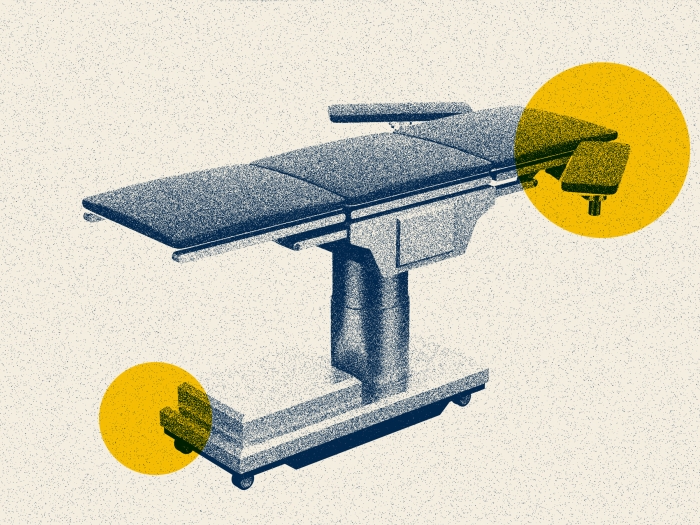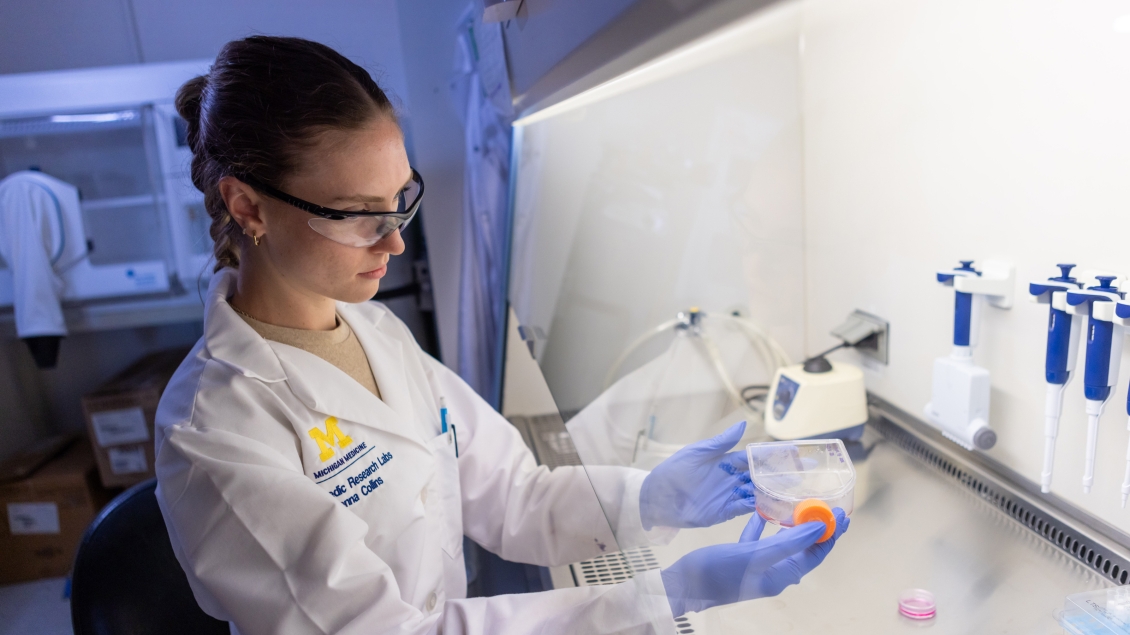
Leading Advances in Musculoskeletal Science & Care
Welcome to where biologists, engineers, and clinicians work together to improve the treatment or prevention of musculoskeletal disorders and diseases.
Led by international leaders in musculoskeletal research, the University of Michigan Medical School Department of Orthopaedic Surgery houses one of the world's leading centers for musculoskeletal research. In addition to a large clinical faculty of orthopedic surgeons actively engaged in research, several full-time research faculty are experts in engineering, cell biology and epidemiology.
Our clinicians and scientists work closely together in the discovery of new treatments to accelerate musculoskeletal tissue healing, improve the utilization and effectiveness of healthcare delivery and develop new strategies to prevent injuries and diseases.
The heart of our department, Orthopaedic Research Laboratories (ORL), is a consortium encompassing our molecular, cellular, physiologic, bio-engineering, and pre-clinical imaging research. Each faculty member here maintains an independent research laboratory and shares an extensive collaborative space with cutting-edge research equipment and resources.
Please fill out the form to learn more about the research opportunities.
The University of Michigan Medical School Department of Orthopaedic Surgery has various laboratories that support our faculty in conducting cutting edge research in musculoskeletal healthcare.
Cellular and molecular regulation of bone cell differentiation, matrix formation, and response to mechanical loading
Faculty conducting research in this area: Abraham, Alford, Goldstein, Hankenson, Jepsen, Killian, Kozloff, Maerz
Micro and nano-CT imaging
Faculty conducting research in this area: Goldstein, Jepsen, Kozloff
Mechanisms of communication from the extracellular matrix to the cell nucleus and regulation of gene expression.
Faculty conducting research in this area: Alford, Goldstein, Hankenson
Mechanisms of skeletal muscle and tendon force production and force transmission and control of tissue growth and atrophy.
Faculty conducting research in this area: Killian
Using stem cells to engineer new bone, cartilage, and ligament tissue.
Faculty conducting research in this area: Alford, Bedi, Goldstein, Hankenson, Miller, Wojtys
